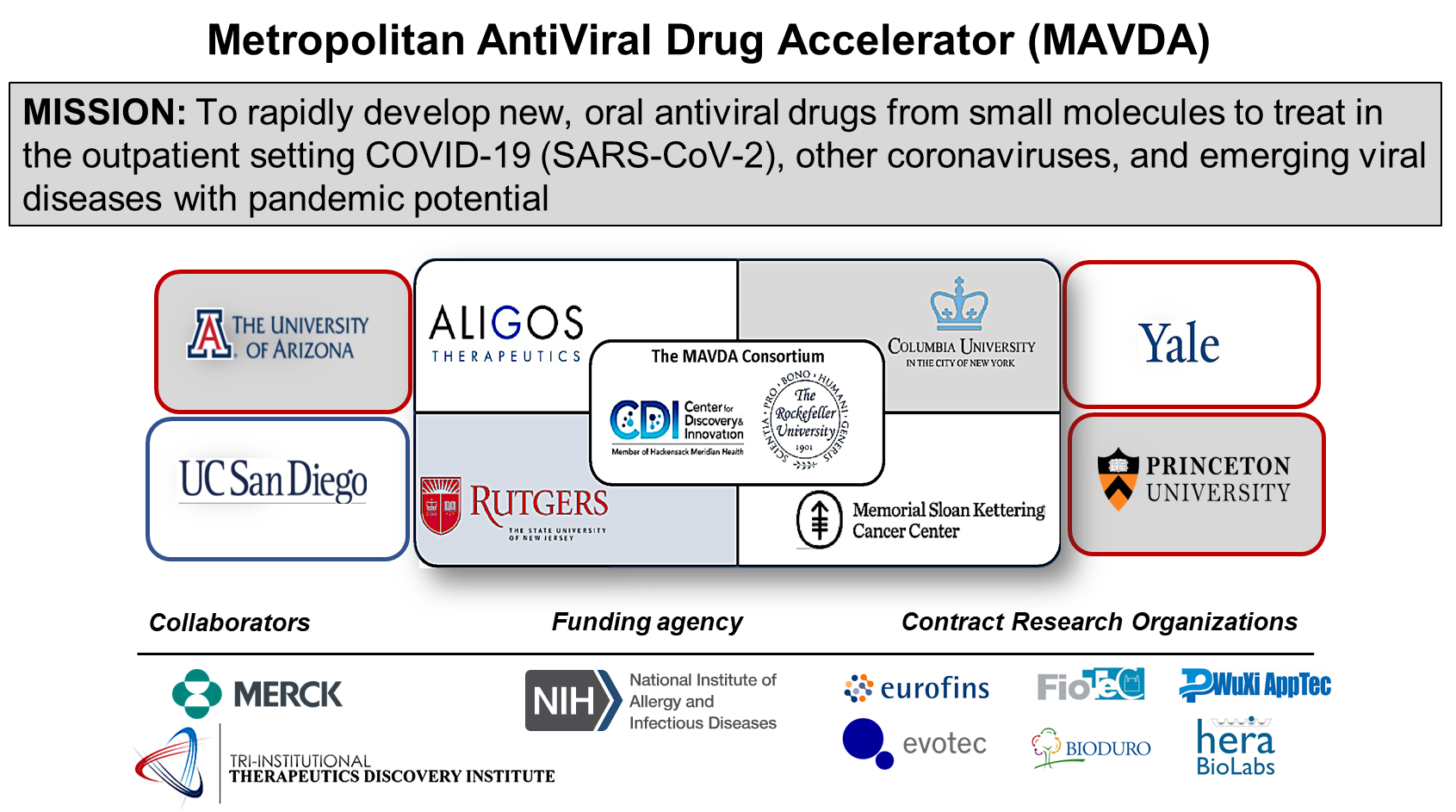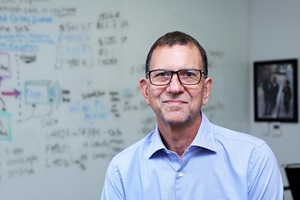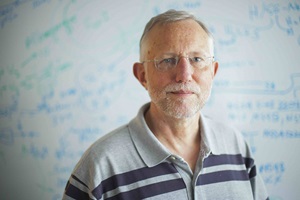About Us

The COVID-19 pandemic caused by severe acute respiratory syndrome coronavirus 2 (SARS-CoV-2) has resulted in millions of deaths worldwide. Novel vaccines against SARS-CoV-2 have altered the pandemic’s trajectory. Yet large populations remain at risk, and immune escape virus variants threaten to thwart vaccine action or current therapies. New small molecule antiviral drugs that are safe and available as oral treatments in the outpatient setting are needed to treat SARS-CoV-2 infections, other coronaviruses, and additional viruses of pandemic concern. Such drugs are essential components of HIV, HCV, and influenza management.
COVID-19 has helped unite large Pharma in anti-infective drug development but there remains a gap in the early drug discovery phase, which can be overcome by effective engagement of academic science in public-private partnerships with industry. Academic groups have great biological insights and platforms for novel discovery resulting in identification of new targets, hits, pre/early-leads. Yet they rarely have the ways or means to optimize compounds and advance them for clinical development.
To bridge the gap, we have created the Metropolitan AntiViral Drug Accelerator (MAVDA). It is an unprecedented collaborative enterprise of academic and Pharma partners in New York City and northern New Jersey brought together in a common discovery ecosystem to address the urgent need for validated small-molecule antiviral drugs.
MAVDA combines world-class virologists and academic drug development researchers from Rockefeller University, Columbia University and Memorial Sloan-Kettering Cancer Center in New York City and the Center for Discovery and Innovation and Rutgers University in New Jersey, along with proven antiviral drug developers Merck, the Tri-Institutional Therapeutics Discovery Institute (Tri-I TDI)-Takeda, and Aligos.


The overall program is co-led by drug discovery expert Dr. David Perlin (left) at the Center for Discovery and Innovation, part of Hackensack Meridian Health and world-renowned virologist and Nobel laureate Dr. Charles Rice (right) at Rockefeller University.
The program benefits from other senior world class virologists including Dr. David Ho (Columbia University) and Dr. Stephen Goff (Columbia University); drug discovery experts Dr. Jingyue Ju (Columbia University) and Dr. Tom Tuschl (Rockefeller University); structural biologists Dr. Lawrence Shapiro (Columbia University) and Dr. Dinshaw Patel (Memorial Sloan Kettering Cancer Center, Cornell University); medicinal chemistry, pharmacology, and drug screening experts Dr. James Balkovec (Center for Discovery and Innovation, Hackensack Meridian Health), Dr. Joel Freundlich (Rutgers University), Dr. Veronique Dartois (Center for Discovery and Innovation, part of Hackensack Meridian Health), and Dr. Fraser Glickman (Rockefeller University).
We recently added four Developmental Research Programs led by Dr. Alexander Ploss (Princeton University), Dr. Craig Wilen (Yale University), Dr. Elizabeth Campbell (Rockefeller University) and Dr. Sean Brady (Rockefeller University). We also welcomed three Mentored Research Programs led by Dr. Sho Iketani (Columbia University), Dr. Wahmiah Chowdhury (Rockefeller University) and Subodh Samrat (University of Arizona).
A critical innovation of the Accelerator is the establishment of an extensive and integrated network of Pharma-style science cores with highly experienced Core directors, which ensures that compound identification and optimization proceeds efficiently. Standardized threshold “gating” metrics for compound progression with clear "go, no go" criteria will be established to support development of qualified drug candidates.
MAVDA projects unite academic and industry investigators with innovative and well-established drug discovery platforms with a strong emphasis on validated viral targets like 3CL Protease (3CLpro), a vital player in coronavirus replication. In addition, the Program also exploits other important targets like PLpro, NSP14 MTase, ExoN RdRp, NSP13 helicase, as well as explores novel targets. Promising early hits, pre/early leads, and optimized leads at or near the IND enabling/derisking stage are represented along with innovative approaches for new compound discovery.
All programs target SARS-CoV-2 but also address other coronaviruses, flaviviruses and alphaviruses. The MAVDA program is robust and designed to easily accommodate developmental projects and new viruses, making it an ideal environment for training the next generation of researchers for pandemic preparedness.
